Summary
- Going into the European elections, Latvia shows significant interest in economic and monetary affairs, with some activity in crypto.
- Domestically, Lithuania supports the development of a digital assets ecosystem, which is feeding through into the activity of its MEPs.
- The EP’s smallest state, Luxembourg, has some, albeit limited, interest in digital assets/crypto policy.
Latvia increasingly active on crypto files
Latvia has eight MEPs, spread evenly throughout the political spectrum, but will increase its allocation to nine seats in June’s European Parliament elections.
Without a doubt Latvia’s most influential and prominent politician at the EU level is Valdis Dombrovskis, Executive Vice-President of the European Commission, responsible for ‘An Economy that Works for People’. His broad portfolio gives him oversight of various economic aspects of the EU’s legislative processes, including crypto and digital finance.
There are three Latvians on the Economic and Monetary Affairs (ECON) committee – Renew MEP Ivars Ijabs (substitute), EPP MEP Inese Vaidere (full member), and veteran ECR MEP Roberts Zīle (full member) – suggesting a significant Latvian interest in economic and monetary affairs.
Although a substitute, Ijabs has been active on ECON files relevant to the digital assets ecosystem, including a role as shadow rapporteur on the recently adopted instant payments regulation. He has also been active in other committees, such as shadow on a 2023 ITRE committee own-initiative report about increasing innovation for start-ups.
Vaidere’s parliamentary work has focussed primarily on SMEs, while Zīle is one of the EP’s vice-presidents, responsible for the institution’s ICT Innovation Strategy and Information and Communication Policy.
In terms of the polls, things are looking extremely tight. EPP-affiliated New Unity is estimated to obtain 14% of the vote, closely followed by a new party, Union of Greens and Farmers (13%), ECR-affiliated National Alliance (13%) and another new, unaffiliated party, Latvia First (12%).
Lithuania increasingly supportive of crypto domestically
Bigger than its Baltic neighbor, Lithuania has 11 MEPs, the biggest contingent of which (four MEPs) are members of the EPP group. Two Lithuanians sit as full members of ECON, Aušra Seibutytė (EPP) and Stasys Jakeliūnas (Green/EFA). Although Seibutytė has not been active on ECON, Jakeliūnas was shadow for his group on the own-initiative report on digital finance, a precursor to the EU’s MiCA Regulation.
At the domestic level, Lithuania has been eager to support the development of a digital assets ecosystem. Initially it offered licenses to firms that were delisted from neighboring Estonia due to AML concerns. More recently, however, the Lithuanian central bank has taken a tougher stance as it prepares for MiCA implementation, and in advance of the EU’s beefed up AML rules coming into application.
Turning to the polls, the S&D-affiliated Social Democratic Party of Lithuania that looks likely to win, with a predicted 25%, well ahead of nearest rival EPP-affiliated Homeland Union (13%). This would see the S&D delegation increase and the EPP one reduce compared to the current make-up. Also noteworthy are two Green/EFA-affiliated parties, Lithuanian Farmers and Greens Union and Democrats For Lithuania (12% and 10% respectively), which suggests an increase on their current two MEPs.
Luxembourg has small, but growing crypto interest
One of the smallest, wealthiest and oldest Member States, Luxembourg has six MEPs spread throughout the traditional, center parties. In terms of crypto, Luxembourg’s interest is small but growing. Three Luxembourg MEPs sit on ECON – Marc Angel (S&D), Martine Kemp (EPP) and Monica Semedo (Renew). However, neither Angel nor Kemp have been active on ECON. Semedo was her group’s shadow on a report on administrative cooperation on taxation (DAC 7), a precursor to the recently adopted DAC8. This brings crypto firms into the scope of EU legislation implementing the OECD CARF recommendations.
The latest polls have the EPP-affiliated Christian Social People’s Party with a comfortable lead (21%), ahead of the Renew-affiliated Democratic Party (14%), and S&D-affiliated Luxembourg Socialist Workers’ Party (11%).




